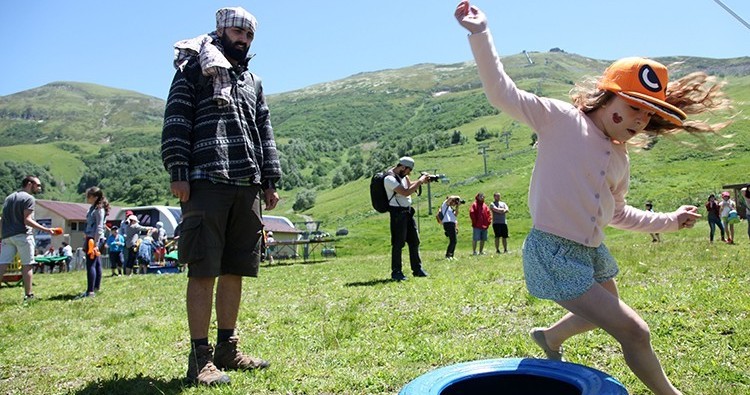Georgians engage in low amounts of physical activity – report

The report reads that adequate time and attention is not given to physical education and sport lessons. Photo: Nino Alavidze/Agenda.ge.
The Georgian population engages as a whole in a low amount of physical activity and the lack of a systematic physical education curriculum in schools present serious challenges to the inclusion of women in Georgian athletics, reads a gender impact analysis of a bill on physical education and sports.
The report reads that adequate time and attention is not given to physical education and sport lessons. In regards to university sports, the report says that engagement of students and especially girls is insufficient in Georgia.
A gender impact analysis in the report demonstrates that less attention is paid to gender mainstreaming in the state policy for sport and to consider gender challenges in the decision making process.
Women and men are not equally engaged in the development of the mentioned process. Most state funding goes to sports dominated by men, and funds allocated for other programmes and respective indicators mostly do not envisage gender aspects", reads the report.
What recommendations does the report lay out?
The gender impact assessment working group thinks that 'the Draft Law on Physical Education and Sport' should more precisely respond to the identified gender challenges.
Together with other changes, it is recommended to establish on a legislative level a commitment to the integration of gender aspects in a state policy document and an action plan for sport.
Respective gender budgeting is essential for ensuring equal access of women and men to physical education.
In regard to school sports, it is important to ensure efficient infrastructure; general education facilities shall be responsible for facilitating equal engagement of girls and boys in school sport activities. A gender equality module shall be added to the training programme for improving qualification of physical education and sport teachers", reads the report.
In response to insufficient engagement in university sport, especially of girls, it is recommended to entrust the 'University Sport Federation' or/and other sport organisations to provide adequate engagement in sport organisations for women, planned within the state funding.
The analysis reads that these changes will have a multidirectional impact: an increase of the rate of regular physical activity of the population, especially women, which in its turn will promote improvement of physical and mental health of the population, as well as of well-being and quality of life.
The report was prepared at an initiative of the Sport and Youth Affairs Committee of the Parliament of Georgia, with the assistance of Parliamentary Budget Office and National Democratic Institute (NDI).
 Tweet
Tweet  Share
Share